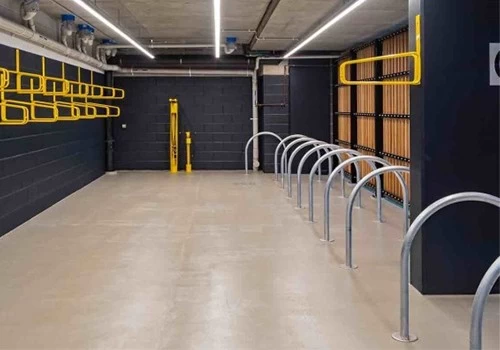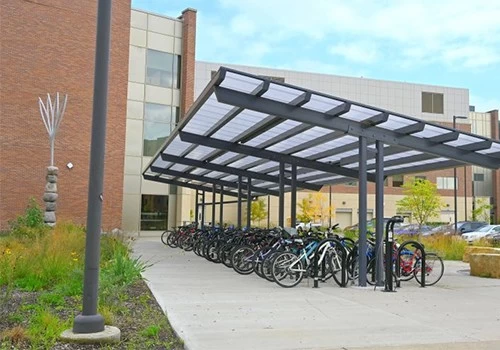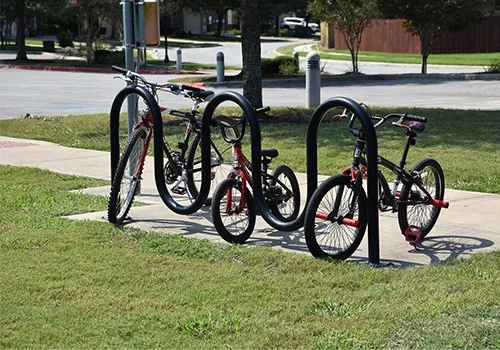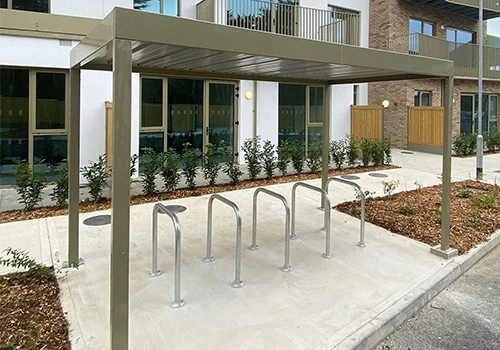Specifications
Model Number : PV-SC-001
Type: Bike parking and storage
Color:Yellow,Black,Green,Red,or Customized.
Style : both indoors and outside
Material : carbon steel
Loading: According to customer need
Size :195*23.2*75cm,200.55*23.2*75cm,or Customized.
Finish: hot-galvanized
Specifications
Model Number : PV-0081-01
Type: Bike parking and storage
Color:silver
Style : both indoors and outside
Material : carbon steel
Loading: According to customer need
Size :Height 1463mm, Depth 1114mm
Finish: hot-galvanized
Model Number : PV-0081-01
Type: Bike parking and storage
Color:Black
Style : both indoors and outside
Material : carbon steel
Loading: 2-10 bikes (According to customer need)
Size :Height 1463mm, Depth 1114mm
Finish: hot-galvanized
Model No.: PV-H1
Size: w605*D400*H330mm
Specification: Round tube:¢16*1.2mm
Finish: Power coated
Net Weight: 1.6 kgs
Packing size:6pcs/ctn
MOQ: 100pcs
Model Number : PV-0024-01
Material : carbon steel/stainless steel
Loading: according customer space size,we can design according the size
Size : W1977*D1130(depend on your parking space)*H2500mm
Finish: Powder coated ,hot-galvanized/electric polish
Packing size :2000*2000*2500mm(40 parking space )
Powder coated ,hot-galvanized/electric polish
Product number:PV-0046-01
Material:carbon steel
Specification:10.2*59*28CM or Customized.
MOQ:100PCS
Port:Shanghai
Trademark:PV
Model Number : PV-0081-01
Type: Outdoor Bike Parking Rack
Style : both indoors and outside
Material : carbon steel
Loading: 2-10 bikes (According to customer need)
Size :170.5*116*148CM
Finish: hot-galvanized
Model Number : PV-0055-01
Type: compact flat pack /slot
Color:black / silver /yellow/optional
Style :Outdoor/indoor
Material : carbon steel/ stainless steel
Capacity : park 6 bikes
Size : L1400*W1054*H840mm
Net weight :38KG
Finish: powder coating / hot galvanized /elctropolishing
Packing size :1490*860*160mm 1pcs/ctn
Product Name: Multi-Capacity Horizontal Two Tier Bike Parking Rack
Material: Carbon Steel
Finish: Powder coated
Post: 80mm * 80mm thickness: 3mm
Steel plate: thickness: 2mm
Dimension: 1325*1890*1830mm
Weight: 370 kg/set
Model: PV-0067-01
Material: stainless steel 304
Pipe: 50 mm* 2.5 mm
Size: 900*700 mm(L*W)
Surface treatment: polishing

When it comes to selecting a bike rack, one of the most crucial decisions you'll face is choosing the right material. Steel, aluminum, and plastic are the three primary options available in the market, each with its own set of advantages and disadvantages. This comprehensive guide will delve into the characteristics, durability, cost, and environmental impact of each material to help you make an informed decision.
Steel is a traditional and widely-used material for bike racks. It is an alloy composed mainly of iron and carbon. There are different types of steel, such as carbon steel and stainless steel bike racks, each with varying levels of strength and corrosion resistance. Carbon steel is the most common type used in bike racks due to its affordability and strength. However, it is prone to rust if not properly treated. Stainless steel, on the other hand, offers superior corrosion resistance but comes at a higher price.
Aluminum is a lightweight and durable metal that has gained popularity in recent years for bike rack construction. It is a non-ferrous metal, which means it does not contain iron and is resistant to rust. Aluminum is also highly recyclable, making it an environmentally friendly option. There are different grades of aluminum, with some being stronger than others. The most commonly used grade for bike racks is 6061 aluminum, which offers a good balance of strength and weight.
Plastic bike racks are a relatively new entry in the market. They are typically made from high-density polyethylene (HDPE) or similar durable plastics. Plastic racks are lightweight and easy to move around. They are also resistant to rust and corrosion, making them suitable for outdoor use. However, plastic is not as strong as metal and may not be able to hold as many bikes or withstand heavy use.

Steel is known for its strength and durability. Carbon steel bike racks can withstand heavy use and support multiple bikes without bending or breaking. However, the main drawback of carbon steel is its susceptibility to rust. If exposed to moisture or harsh weather conditions, it can corrode over time, leading to structural weakness. Stainless steel, while more resistant to rust, is also more expensive and may not be necessary for all applications.
Aluminum is not as strong as steel, but it is still a durable material for bike racks. It can support a reasonable number of bikes and is resistant to rust and corrosion. Aluminum racks are also less likely to dent or scratch compared to steel racks. However, aluminum can become weakened if exposed to extreme temperatures or if it is not properly treated during the manufacturing process.
Plastic bike racks are the least durable of the three materials. While they are resistant to rust and corrosion, they are not as strong as metal racks. They may bend or crack under heavy use or if subjected to extreme temperatures. Plastic racks are also more likely to fade or become brittle over time when exposed to sunlight.

Steel bike racks are heavy and not easily portable. This can be an advantage in some situations, as it makes the rack more stable and less likely to be moved around accidentally. However, it can also be a disadvantage if you need to move the rack frequently or if you have limited storage space.
Aluminum bike racks are lightweight and easy to move around. This makes them a good choice for people who need to transport their rack frequently or who have limited storage space. The lightweight nature of aluminum also makes it easier to install and handle during the manufacturing process.
Plastic bike racks are also lightweight and portable. They are easy to move around and can be stored easily when not in use. However, their lightweight nature can also make them less stable compared to metal racks. They may be more likely to tip over if not properly secured.
Steel bike racks are generally the most affordable option. Carbon steel is relatively inexpensive to produce, making it a popular choice for budget-conscious consumers. Stainless steel racks are more expensive due to the higher cost of the material and the additional manufacturing processes required to make them rust-resistant.
Aluminum bike racks are more expensive than steel racks but less expensive than stainless steel racks. The cost of aluminum is higher than steel, and the manufacturing process is more complex, which contributes to the higher price. However, the durability and lightweight nature of aluminum can make it a worthwhile investment in the long run.
Plastic bike racks are usually the least expensive option. They are easy and inexpensive to produce, making them a good choice for people on a tight budget. However, the lower cost of plastic racks is often reflected in their durability and strength.

Steel bike racks have a traditional and sturdy appearance. They are available in a variety of finishes, including powder-coated, painted, or galvanized, which can enhance their appearance and protect them from rust. Steel racks can blend well with both modern and traditional architectural styles.
Aluminum bike racks have a sleek and modern appearance. They are available in a variety of finishes and colors, making them easy to match with different design styles. The lightweight nature of aluminum also allows for more creative and intricate designs compared to steel racks.
Plastic bike racks have a more casual and contemporary appearance. They are available in a wide range of colors and can be designed in various shapes and sizes. However, plastic racks may not have the same level of sophistication as metal racks and may not be suitable for all design settings.
Steel is a recyclable material, which means it can be reused and repurposed at the end of its life cycle. However, the production of steel requires a significant amount of energy and resources, which can have a negative impact on the environment. Additionally, if not properly treated, steel can rust and corrode, leading to waste and potential environmental contamination.
Aluminum is highly recyclable and requires less energy to produce compared to steel. It also has a lower environmental impact during its life cycle. The use of recycled aluminum in the manufacturing process can further reduce its environmental footprint. Additionally, aluminum does not rust or corrode, making it a more sustainable option in the long run.
Plastic is a non-recyclable material in many cases, which means it can contribute to environmental waste. The production of plastic also requires the use of fossil fuels, which can have a negative impact on the environment. However, some plastic bike racks are made from recycled materials, which can help reduce their environmental impact.
Steel bike racks require regular maintenance to prevent rust and corrosion. They should be cleaned regularly and protected from moisture and harsh weather conditions. If rust does occur, it should be treated promptly to prevent further damage. Stainless steel racks require less maintenance than carbon steel racks but still need to be cleaned and inspected regularly.
Aluminum bike racks require minimal maintenance. They are resistant to rust and corrosion and do not require painting or other protective treatments. However, they should still be cleaned regularly to remove dirt and debris that can accumulate over time.
Plastic bike racks also require minimal maintenance. They are resistant to rust and corrosion and do not require painting or other protective treatments. However, they may need to be cleaned regularly to prevent fading or discoloration caused by exposure to sunlight.
Choosing the right bike rack material depends on several factors, including durability, weight, cost, aesthetic appeal, environmental impact, and maintenance requirements. Steel is a strong and affordable option but requires regular maintenance to prevent rust. Aluminum is a lightweight and durable material that is resistant to rust and has a lower environmental impact. Plastic is the most affordable and lightweight option but is not as durable as metal.In summary, if you prioritize strength and affordability, steel may be the best choice for you. If you value durability, weight, and environmental sustainability, aluminum may be the way to go. And if you are on a tight budget and need a lightweight and portable option, plastic may be the most suitable material for your bike rack.